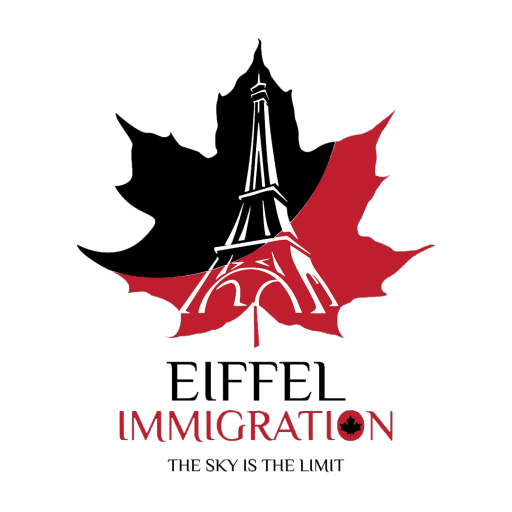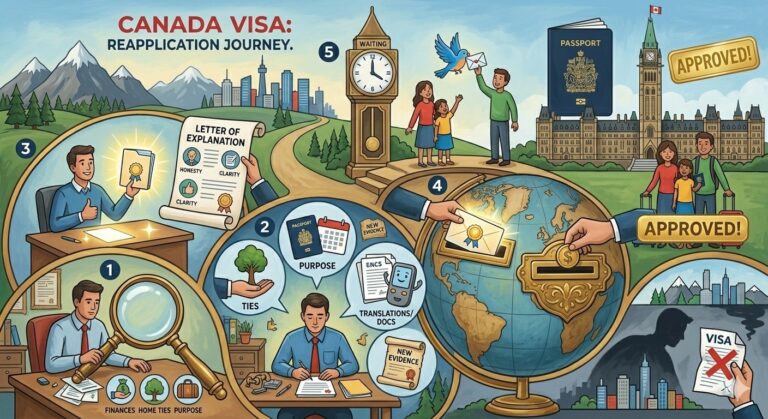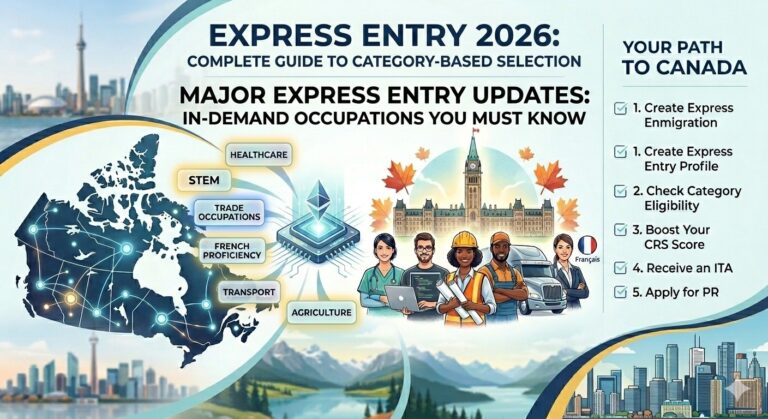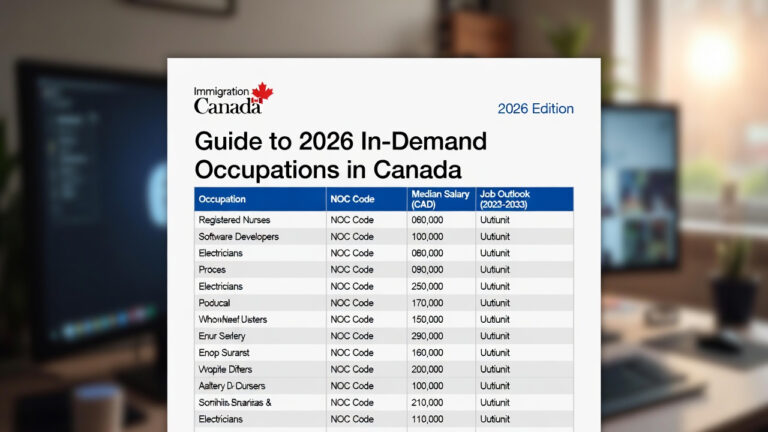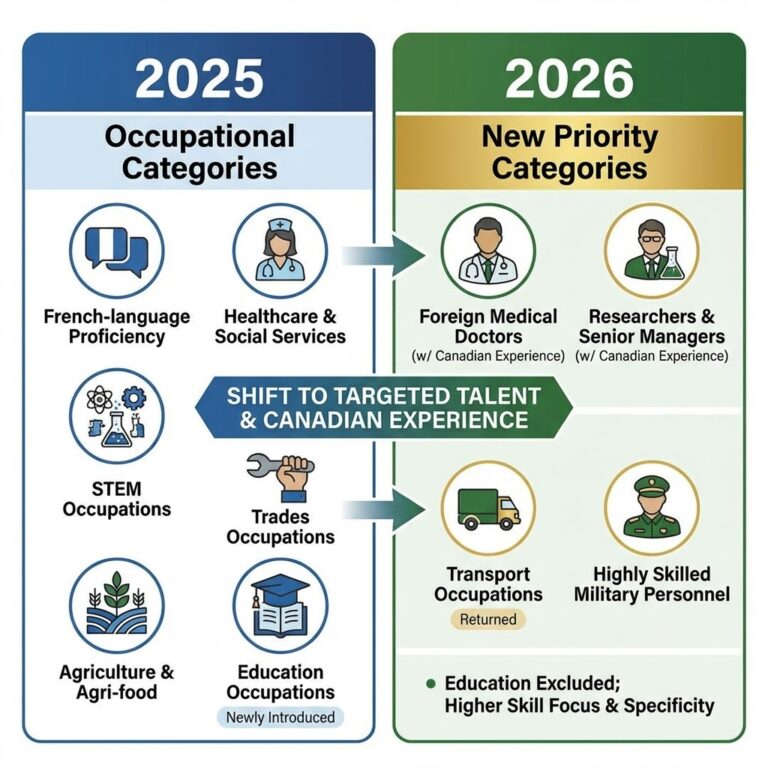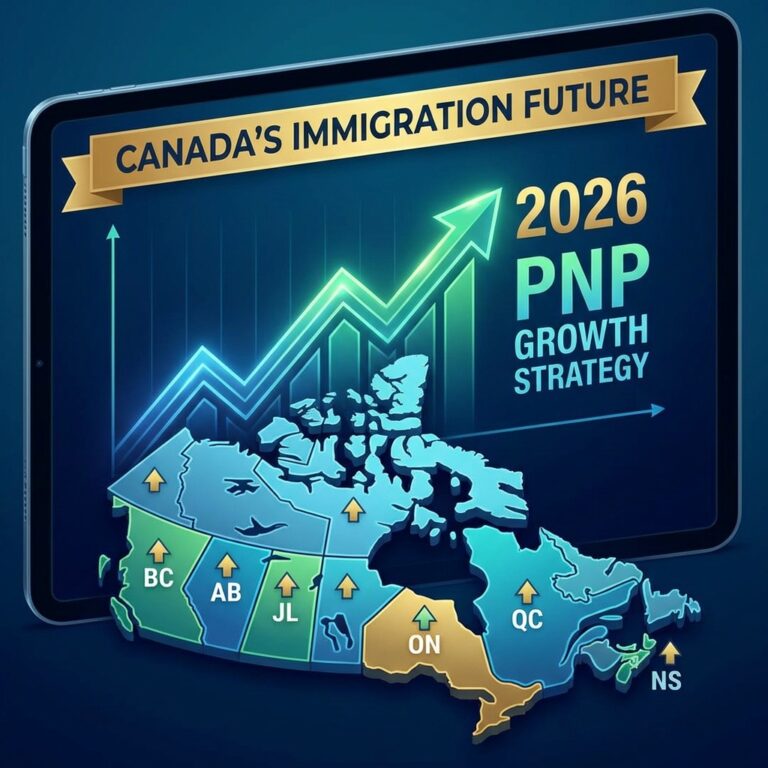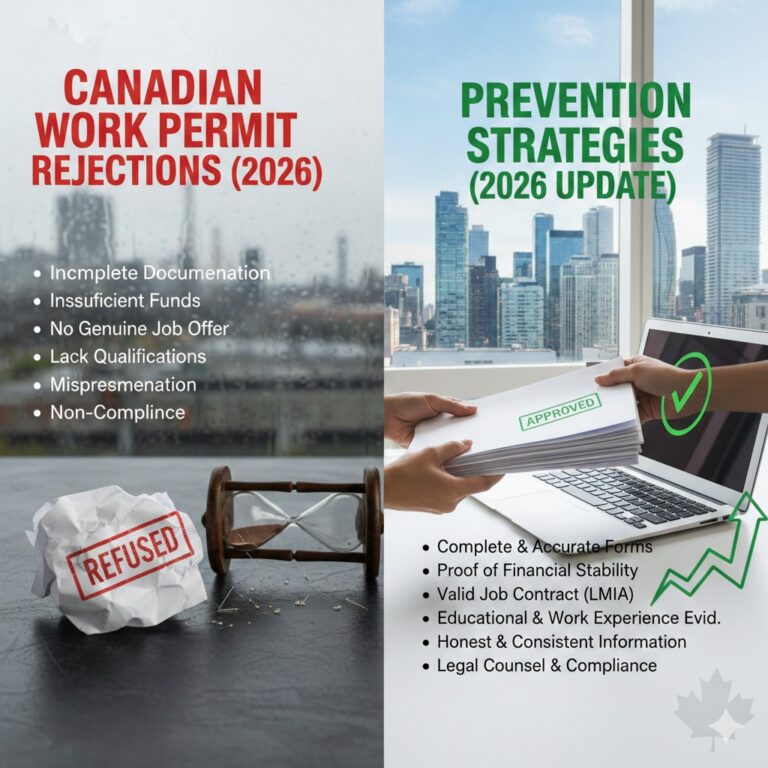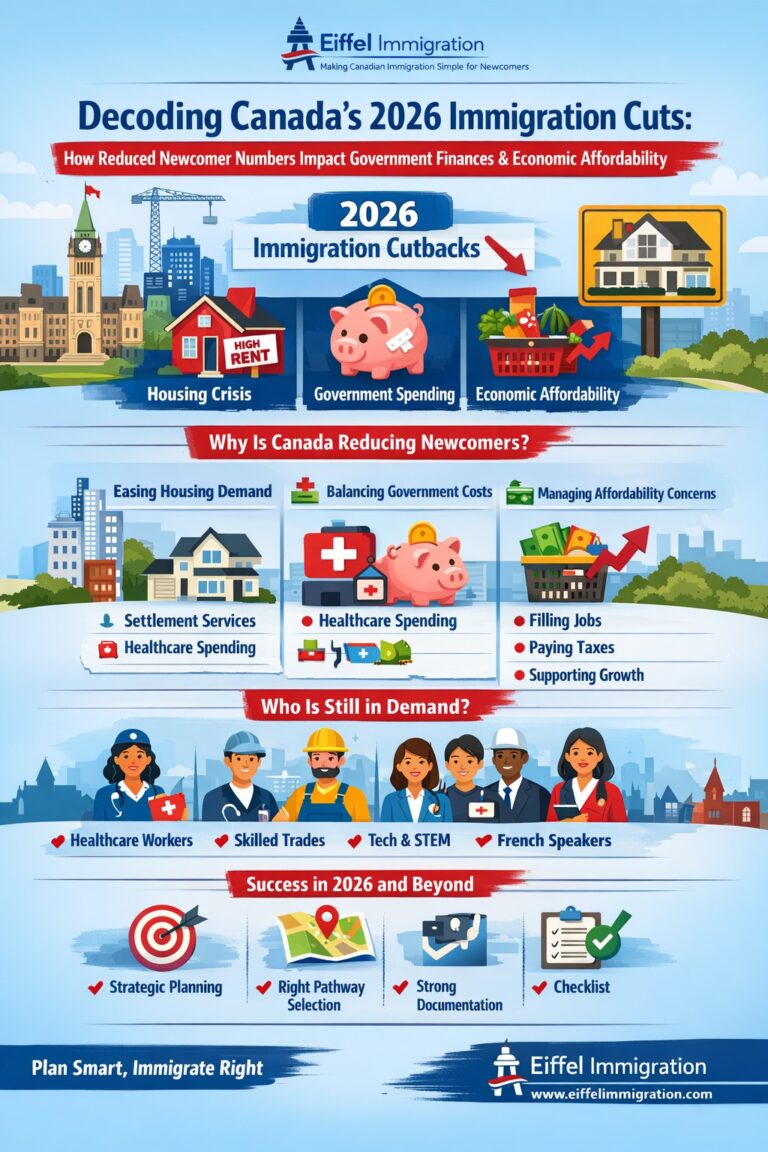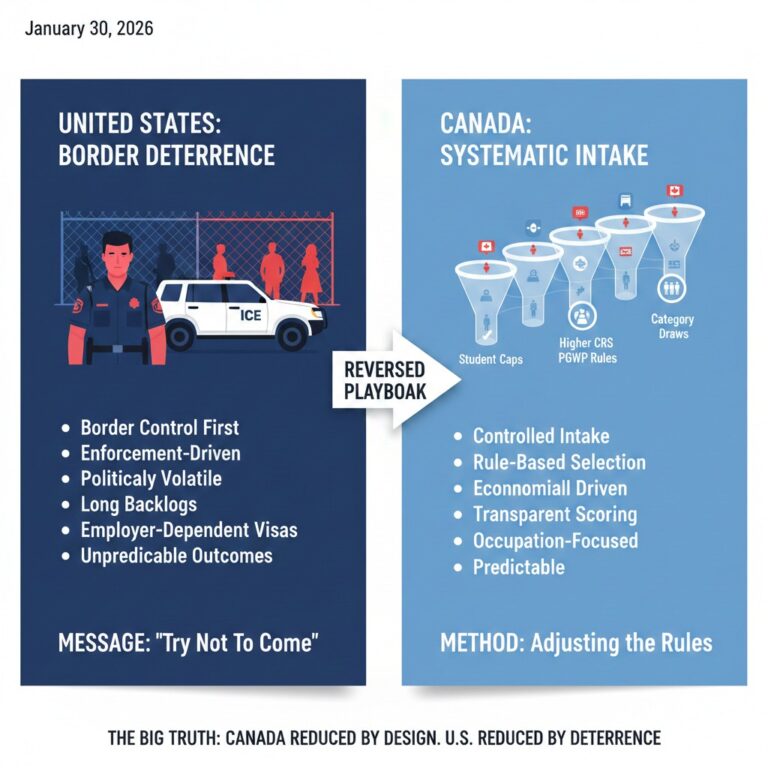The IRCC backlog has been a persistent challenge for immigration applicants, temporary residents, and small business owners relying on timely approvals for foreign workers. As of August 31, 2025, Immigration, Refugees, and Citizenship Canada (IRCC) reported 958,850 pending applications, showing a steady increase compared to 901,700 applications at the end of July 2025. This rise underscores ongoing delays across multiple immigration streams, including study permits, work permits, permanent residence, and family sponsorship applications.
Understanding the current trends in the IRCC backlog is critical for prospective applicants to plan ahead, manage expectations, and navigate potential delays.
IRCC Backlog Trends Over the Past Six Months
Analyzing the last six months of IRCC processing data provides valuable context for the current situation:
| Month | Total Backlog | Monthly Change |
|---|---|---|
| March 2025 | 779,900 | -5.03% |
| April 2025 | 760,200 | -2.53% |
| May 2025 | 802,000 | +5.5% |
| June 2025 | 842,800 | +5.02% |
| July 2025 | 901,700 | +6.98% |
| August 2025 | 958,850 | +6.33% |
Over this period, the backlog has consistently increased, with only minor declines earlier in the year. The overall upward trend highlights a growing demand for immigration services in Canada, coupled with IRCC processing challenges.
By the end of August, IRCC’s total inventory across all programs was 2,199,400 applications, with 1,240,550 being processed within standard timelines, leaving a large portion contributing to the backlog.
Permanent Residence Applications
Permanent residence remains one of the most significant contributors to the IRCC backlog. As of August 31, IRCC reported 901,800 pending permanent residence applications, covering:
-
Express Entry
-
Provincial Nominee Programs (PNPs) aligned with Express Entry
-
Family sponsorship applications
Of these, only 431,500 applications were being processed within IRCC’s service standards, leaving 470,300 applications in the backlog — a rise from 443,500 in July 2025.
Backlog by Category:
- Express Entry: 20% of applications in backlog, a slight improvement from 21% in July
- PNP via Express Entry: 49% of applications in backlog, unchanged from July but significantly higher than 25% in December 2024
- Family sponsorship: Increased to 17%, the highest level in two years
These statistics indicate that while some processing improvements have been made for Express Entry, PNP and family sponsorship applications continue to face long delays. Applicants should plan accordingly, especially if they are relying on provincial nomination streams for faster PR processing.
Temporary Residence Applications
Temporary residence applications are another major category in the IRCC backlog, including study permits, work permits, and visitor visas. As of August 31, 1,038,100 temporary residence applications were pending.
-
Processed within service standards: 600,750 (58%, down from 62% in July)
-
Applications in backlog: 437,350
Breakdown by Type:
-
Work permits: Backlog decreased slightly to 45% from 46%
-
Study permits: Backlog surged from 23% in July to 32% in August
-
Visitor visas: Backlog increased from 56% to 60%
The rise in study permit backlogs is particularly notable, reflecting increased international student interest in Canada and the challenges IRCC faces in processing large volumes of applications. Students planning to study in Canada should submit applications well in advance and consider guidance from immigration experts to navigate delays.
Citizenship Applications
Citizenship applications remain relatively stable within IRCC service standards, though minor increases in backlog were observed. As of August 31, 20% of citizenship applications were considered part of the backlog, compared to 19% in July. This demonstrates that while citizenship processing remains largely on track, applicants should still anticipate some delays, especially for more complex cases.
What Is the IRCC Backlog?
The term IRCC backlog refers to applications that exceed published processing standards. IRCC publishes service standards for each type of application to provide applicants with an expected processing timeframe. Examples include:
-
Express Entry: 6 months
-
Family sponsorship: 12 months
-
Study and work permits: Varies by category
If an application is not processed within these timeframes, it is counted as part of the backlog. IRCC aims to process 80% of applications within standard timelines, acknowledging that more complex cases may require longer processing periods.
Understanding the IRCC backlog is essential for applicants to set realistic expectations and plan their immigration journey accordingly.
Factors Contributing to the IRCC Backlog
Several factors are driving the growing backlog at IRCC:
-
Increased Application Volume: Canada continues to attract a high number of immigrants and temporary residents, leading to rising application numbers across all programs.
-
Staffing and Resource Constraints: Limited staffing at IRCC offices impacts processing times, especially for complex applications.
-
Policy Changes: Frequent updates to immigration programs can temporarily slow processing as new criteria are implemented.
-
Global Events: International factors, such as travel restrictions and global crises, can affect application volumes and timelines.
Tips for Applicants Facing IRCC Backlog
While the IRCC backlog may seem overwhelming, there are strategies applicants can use to navigate delays:
-
Apply Early: Submit applications well before intended start dates for study, work, or residency.
-
Stay Updated: Monitor IRCC announcements and processing timelines regularly.
-
Seek Professional Guidance: Immigration experts can help ensure applications are complete, reducing the risk of delays due to errors or missing documentation.
-
Plan Contingencies: For students and workers, have backup plans in case processing exceeds expected timelines.
How Eiffel Immigration Can Help
At Eiffel Immigration, we understand the challenges posed by the IRCC backlog. Our team of experts provides:
-
Personalized guidance for permanent residence, study permits, work permits, and family sponsorships
-
Timely updates on IRCC processing times and policy changes
-
Strategies to minimize delays and improve application success rates
Whether you are a student, skilled worker, or family sponsor, our team ensures that your application is prepared accurately and submitted efficiently, giving you the best chance to navigate the IRCC backlog successfully.
Conclusion
The IRCC backlog continues to grow across multiple immigration categories, from permanent residence and study permits to temporary visas and family sponsorships. Applicants should be aware of the current trends, plan for potential delays, and seek expert guidance to ensure their immigration journey remains on track.
By staying informed and proactive, you can better manage the impact of the backlog and make strategic decisions for your future in Canada.
